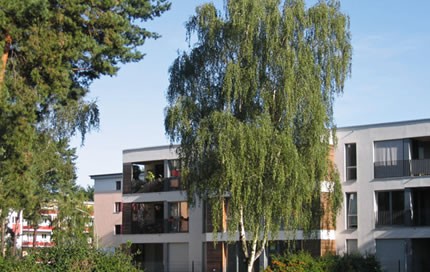Dealing With Landlords in College
Written by SayStudent Adminstration // 2013/03/27 // Living Quarters // Comments Off on Dealing With Landlords in College

Most college students enter university life with very little knowledge of the outside world. From day one, there are people out there who try to exploit this lack of worldly experience. Some of the worst offenders are landlords, who are able to turn the wheels on college tenants because these students have never lived alone before and do not know what to expect. A few simple tips can help you get through college without any real estate hassles.
Read the Fine Print
The agreement and lease that a college student signs will put them in a legal contract with the real estate owner. Many students do not realize that this is a binding contract and not subject to negotiation — especially once their signature is on the paper. Any student needs to carefully go over a lease agreement, checking details about when rent is due, who is responsible for any damages, and what condition any furniture or appliances are in. This lease should be available to the tenant at all times (often the tenant keeps it while the landlord keeps a copy): any landlord that refuses to let the tenant see it should be a serious red flag.
Record the Condition of the Lease
Whenever you sign the lease on an apartment, create proof of the condition of your living quarters before you move in and begin to live in the apartment or house. Photograph any areas of the house that are in poor condition or have not been cleaned so that you can show it as proof if necessary. Note every single aspect of the building that needs repair, down to the smallest chip in the wall or a single windowpane that has a crack. This keeps you from having to pay for any damage that you did not cause once you move out.
Ask Questions
Show a landlord that you are not gullible or easy to fool and you will have a lot easier time of your stay in an apartment. Ask them about details on previous owners, about how rent is supposed to be paid, who handles maintenance issues, and how utilities are supposed to be paid. Though not all landlords are willing to budge on their prices, many college real estate markets are very over saturated and have empty units. Try to negotiate a better monthly rent, or perhaps even a month or two’s rent for free. Ask them if there are other properties they own and manage, and whether or not those have available units.
Rights of Tenants
In rare cases, it may be necessary to invoke the rights that you have as a tenant with a signed lease. A landlord is unable to evict their tenants without proof of a breach of lease, unable to raise the rents without an agreement, and unable to inspect your unit without advance notification. Any landlord who barges into a property or threatens to evict a tenant due to unproven issues can be sued for breach of contract.
Keep a Landlord on Their Toes
In the event that an appliance breaks through no fault of your own, such as an air conditioner that drips, you can contact the landlord and request repairs immediately. The longer they wait, the more evidence you have on your hands of negligence, meaning that you can be quite demanding about how quickly they send a maintenance team. Make sure to note when and where the necessary repairs were requested compared to when (if ever) they were finally fixed. If necessary, this can be used as proof in court that your landlord violated the terms of a lease and can be held liable.
Author Bio
Alex Wright is a writer who creates articles concerning real estate. This article gives tips to college students on dealing with landlords and aims to encourage further study with an Online Real Estate Degree.


 If you want to contribute tutorials, news or other student-related tips or stuff:
If you want to contribute tutorials, news or other student-related tips or stuff:  Share our student library with your facebook friends:
Share our student library with your facebook friends:  Do you have any ideas or suggestions you would like to make?
Do you have any ideas or suggestions you would like to make?  If you like what we do, please subscribe to our
If you like what we do, please subscribe to our  All content Copyright © 2012-13 SayStudent.com. Part of nBuy Education Network.
All content Copyright © 2012-13 SayStudent.com. Part of nBuy Education Network.